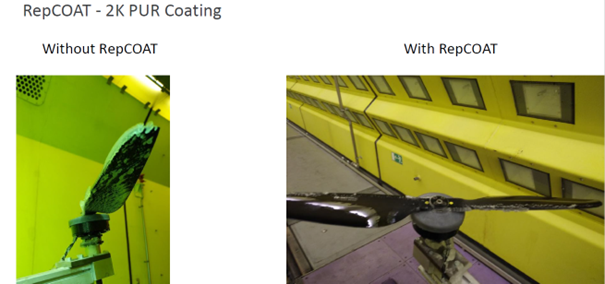3rd AIRlabs Expert Talk: All-weather-Drones
By olah
12. Juli 2022
Dealbreaker or not? How important are all-weather capabilities of UAS?
On the 3rd of May, the BMK innovation laboratory AIRlabs Austria has hosted yet another workshop with experts from industry and research, this time to analyze all-weather capabilities of small UAS. In this 3rd expert talk of AIRlabs, the following experts participated and contributed to the findings summarized here:
- Christian Steurer and Andrea Vilardi (terraXcube, Italy)
- Erwin Engelhardt (Ministry of the Interior – Aerial Police)
- Christian Mundigler (FACC)
- Wolfgang Breitfuß (Rail Tec Arsenal and Aerotex)
- Wolfgang Hassler (JOANNEUM University of Applied Sciences)
- Reinhard Puffing (JOANNEUM University of Applied Sciences and Austrian Institute for Icing Sciences)
- Robert Hörmann (Aero Enterprise) had to cancel his participation last minute but had sent valuable inputs to the discussion
On behalf of AIRlabs, Roswitha Wiedenhofer-Bornemann and Karl Fesl participated from the management side as well as Holger Friehmelt as technical scientific director and Daniel Olah as project assistant.
There is no doubt about the increase in demand for drones, from small to large scale, both in the public and private sector. The European Drone Outlook Study estimates that the European drone market will represent EUR 10 billion annually by 2035, based on the assumption of drones operating and being constrained by weather to only 200 days per annum. The expert panel agreed on the limiting factors of severe rain, snow, and icing weather conditions for the operational availability. However, the effects of those conditions on the operation of multicopters are relatively unknown. Furthermore, no civil weather-related certification specifications and rules for operation of those UAS currently exist.
The participants of the expert workshop also agreed that all-weather capabilities are essential for the safe operation of any kind of UAS. In some cases, this is even a show-stopper in terms of business operability. Nevertheless, this topic is currently not at priority for manufacturers and operators of UAS with a MTOW (maximum take of mass) lower than 25 kg. The reason is most likely the lack of weather-related certification rules, especially for such small UAS. The general opinion was that UAS-technologies are advancing faster than the existing regulations, which could be interpreted as an advantage or disadvantage.
The participants of this workshop believe that weather-related certification rules will be also relevant for small UAS in the course of BVLOS (beyond visual line of sight) operations, whereby a risk-based approach may be used.
A clear recommendation for research and development work is in the field of icing detection and protection. As a first step, a reliable detection system is indispensable, which informs the pilot/operator as soon as the UAS is facing icing conditions and allows the UAS to safely exit those conditions. State of the art research work – coming from within the AIRlabs consortium – shows that there is limited time available (1-2 minutes) for such exit procedures until the UAS gets into critical flight conditions. De-icing systems face the challenge that there is very limited energy available to operate such ice protection systems. The participants of this workshop agreed that electro-thermal systems may be requiring too much energy.
In summary, the key findings and recommendations from the 3rd AIRlabs expert workshop are:
- All-weather capabilities essential for the safe operation of UAS from small to large.
- All-weather capabilities currently not at priority for manufacturers and operators of UAS with MTOW less than 25 kg.
- Lack of weather-related certification rules, especially for small UAS.
- Weather-related certification rules will be also relevant for small UAS with BVLOS operations. A risk-based approach may be used.
- Dedicated research and development are required in the fields of weather detection and protection.
- Especially for icing conditions, there is a lack of technologies for small UAS.
- As a first step, reliable detection systems would be useful.
- Ice protection systems would be useful. Challenge is the very limited energy available to operate such ice protection systems.
AIRlabs is officially engaged with other partners in the current FFG-funded research project “All-weather Drone” and provides its infrastructure and associated knowhow. AIRlabs will continue to focus on UAS icing as a key focus area of its activities.


